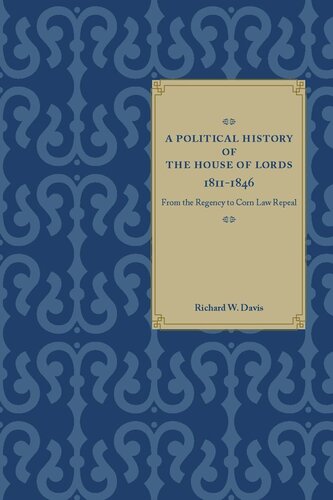

Most ebook files are in PDF format, so you can easily read them using various software such as Foxit Reader or directly on the Google Chrome browser.
Some ebook files are released by publishers in other formats such as .awz, .mobi, .epub, .fb2, etc. You may need to install specific software to read these formats on mobile/PC, such as Calibre.
Please read the tutorial at this link: https://ebookbell.com/faq
We offer FREE conversion to the popular formats you request; however, this may take some time. Therefore, right after payment, please email us, and we will try to provide the service as quickly as possible.
For some exceptional file formats or broken links (if any), please refrain from opening any disputes. Instead, email us first, and we will try to assist within a maximum of 6 hours.
EbookBell Team

5.0
60 reviewsThe history of England's House of Lords in the nineteenth century has been largely misunderstood or ignored by historians. Richard W. Davis argues that the Lords were not primarily reactionary or obstructive, but rather a House in which much beneficial legislation was enacted. More conservative in political questions than the Commons perhaps, the Lords at least equaled them in compassion for the poor and suffering. While many historians also argue that after the Reform Act of 1832 the Lords had little real power, the Lords actually had precisely the same power after the Act as before: a bill could become law only after it passed both Houses of Parliament. They also had the power of veto and used it, particularly from 1833 to 1841 after the passage of the Act that is supposed to have so weakened them. The Whig House of Commons did not appreciate the actions of the Conservative majority in the Lords, but the electorate, becoming more conservative with every election, cared not at all.